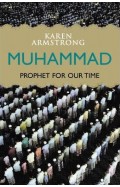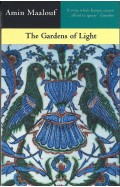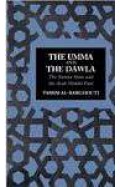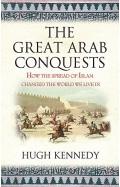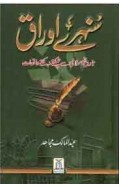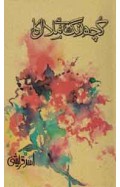- Home
- Books
- Categories
- Urdu Books
- Mazhab Aur Rohaniyat
- FORCES OF FORTUNE: The Rise of Islamic Capitalism - Why the New Muslim Middle Class Is the Key to Defeating Extremism
FORCES OF FORTUNE: The Rise of Islamic Capitalism - Why the New Muslim Middle Class Is the Key to Defeating Extremism
By: Vali Nasr
-
Rs 3,955.50
- Rs 4,395.00
- 10%
You save Rs 439.50.
Due to constant currency fluctuation, prices are subject to change with or without notice.
FORCES OF FORTUNE: The Rise of Islamic Capitalism - Why the New Muslim Middle Class Is the Key to Defeating Extremism
By: Vali Nasr
Rs 3,955.50 Rs 4,395.00 Ex Tax :Rs 3,955.50
Zubin Mehta: A Musical Journey (An Authorized Biography)
By: VOID - Bakhtiar K. Dadabhoy
Rs 472.50 Rs 1,050.00 Ex Tax :Rs 472.50
The Greatness Mindset - Unlock the Power of Your Mind and Live Your Best Life Today
By: Lewis Howes
Rs 3,916.00 Rs 4,895.00 Ex Tax :Rs 3,916.00
How to Understand and Deal with Health Anxiety - Everything You Need to Know to Manage Health Anxiety
By: Katy Georgiou
Rs 2,471.25 Rs 3,295.00 Ex Tax :Rs 2,471.25
Decisionscape - How Thinking Like an Artist Can Improve Our Decision-Making
By: Elspeth Kirkman
Rs 7,496.25 Rs 9,995.00 Ex Tax :Rs 7,496.25
Where Research Begins - Choosing a Research Project That Matters to You (and the World)
By: Thomas S Mullaney
Rs 6,296.25 Rs 8,395.00 Ex Tax :Rs 6,296.25
1001 Inventions The Enduring Legacy Of Muslim Civilization
By: Salim T S Al-Hassani
Rs 5,001.75 Rs 7,695.00 Ex Tax :Rs 5,001.75
Goodnight Stories from the Life of Sahabah PBUH
By: Saniyasnain Khan
Rs 3,356.00 Rs 4,195.00 Ex Tax :Rs 3,356.00
The Greatness Mindset - Unlock the Power of Your Mind and Live Your Best Life Today
By: Lewis Howes
Rs 3,916.00 Rs 4,895.00 Ex Tax :Rs 3,916.00
How to Understand and Deal with Health Anxiety - Everything You Need to Know to Manage Health Anxiety
By: Katy Georgiou
Rs 2,471.25 Rs 3,295.00 Ex Tax :Rs 2,471.25
Decisionscape - How Thinking Like an Artist Can Improve Our Decision-Making
By: Elspeth Kirkman
Rs 7,496.25 Rs 9,995.00 Ex Tax :Rs 7,496.25
Where Research Begins - Choosing a Research Project That Matters to You (and the World)
By: Thomas S Mullaney
Rs 6,296.25 Rs 8,395.00 Ex Tax :Rs 6,296.25
No recently viewed books available at the moment.
Zubin Mehta: A Musical Journey (An Authorized Biography)
By: VOID - Bakhtiar K. Dadabhoy
Rs 472.50 Rs 1,050.00 Ex Tax :Rs 472.50
FORCES OF FORTUNE: The Rise of Islamic Capitalism - Why the New Muslim Middle Class Is the Key to Defeating Extremism
By: Vali Nasr
Rs 3,955.50 Rs 4,395.00 Ex Tax :Rs 3,955.50
The Greatness Mindset - Unlock the Power of Your Mind and Live Your Best Life Today
By: Lewis Howes
Rs 3,916.00 Rs 4,895.00 Ex Tax :Rs 3,916.00
How to Understand and Deal with Health Anxiety - Everything You Need to Know to Manage Health Anxiety
By: Katy Georgiou
Rs 2,471.25 Rs 3,295.00 Ex Tax :Rs 2,471.25
Decisionscape - How Thinking Like an Artist Can Improve Our Decision-Making
By: Elspeth Kirkman
Rs 7,496.25 Rs 9,995.00 Ex Tax :Rs 7,496.25
Where Research Begins - Choosing a Research Project That Matters to You (and the World)
By: Thomas S Mullaney
Rs 6,296.25 Rs 8,395.00 Ex Tax :Rs 6,296.25











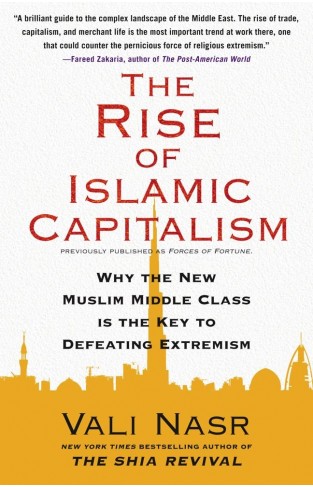
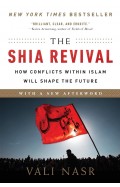
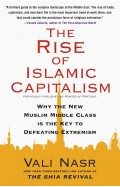
-120x187.jpg?q6)










